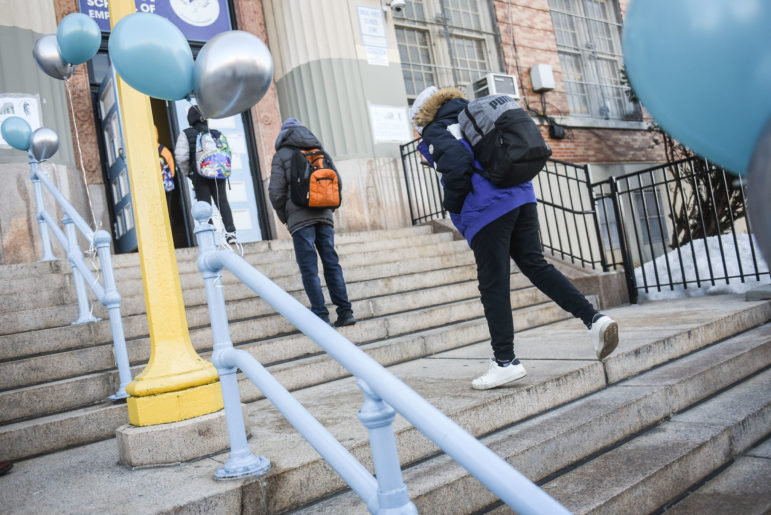Social services groups that depend on local legislators’ “pork” to keep going are about to find themselves over a barrel.
Last week, after Governor Pataki vowed to cut $3 billion in state funding over the next 18 months, state legislators began telling some of the programs they fund each year through discretionary, so-called “member items” not to expect cash this time. It’s difficult to say exactly how much of the member items, which totaled about $331 million statewide last year, typically go to social service programs. But human services groups across New York, which rely on the legislature’s cash for everything from food pantries to ESL classes, are already devising game plans for cutting back.
William Rapfogel, executive director of the Metropolitan Council on Jewish Poverty, faces losing $835,000 in member items. Since receiving the bad news from Assembly Speaker Sheldon Silver’s office, Rapfogel has made plans to start trimming food and counseling services, as well as staff members, by the end of this week. He said he may have to cut hot meal deliveries and caseworker visits for 600 seniors, meals on wheels for another 3,000 homebound seniors and food packages for 7,000 people a week (of those, said Rapfogel, only several hundred will be cut). He also expects to lay off 20 employees, including administrative staff and domestic violence caseworkers.
“We keep holding out hope that there’s a chance some agreement will come out of Albany,” said Rapfogel. But after six months of borrowing money to cover program costs while the legislators squabbled over the state budget, he said he can’t wait anymore.
The state Office for the Aging receives about $10 million in member items each year. Because there is no dedicated state funding stream for senior centers, the loss of last-minute funds typically slotted in by legislators will hit them particularly hard. “Member items have become the state funding stream for senior centers,” said Bobbie Sackman, director of Public Policy for the Council of Senior Centers and Services, a coalition of 265 agencies statewide. “And if you cut these services, it’s just more stress on the families.”
While the legislature is scheduled to reconvene in Albany today, no one expects many member items, if any, will get into the budget. “I’m as sure as I am about anything that we’ve lost that money,” said Lynn Applebaum, deputy director for programs at the Lenox Hill Neighborhood House on the Upper East Side.
The $93,000 that Lenox Hill House receives, care of Republican Senator Roy Goodman and Democratic Assemblymembers John Ravitz and Pete Grannis, supports social workers who advise close to a thousand low-income clients about housing, welfare and computer education, as well as teach ESL classes. “These are all services which otherwise do not get public money,” Applebaum pointed out.
Applebaum hopes to save some of those programs with private funding, while paring down or eliminating others. But she’ll be competing for that private money: In fact, the 37 settlement houses across the city, Lenox House included, stand to lose $2 million in member items alone, according to Emily Menlo Marks, executive director of United Neighborhood Houses.
Many health groups will be touched, as well. According to Change New York, an anti-taxation group, organizations and municipalities providing health services received at least $4 million in member items last year. Gay Men’s Health Crisis, for one, stands to lose at least $75,000.
Member items are only a small part of the state funding social service groups stand to lose–about $600 million worth of service programs were left out of the “bare bones” budget passed in July. But to the groups that benefit from those political favors, they’re critical: “This is meat and potatoes,” said Sackman, “not pork.”








